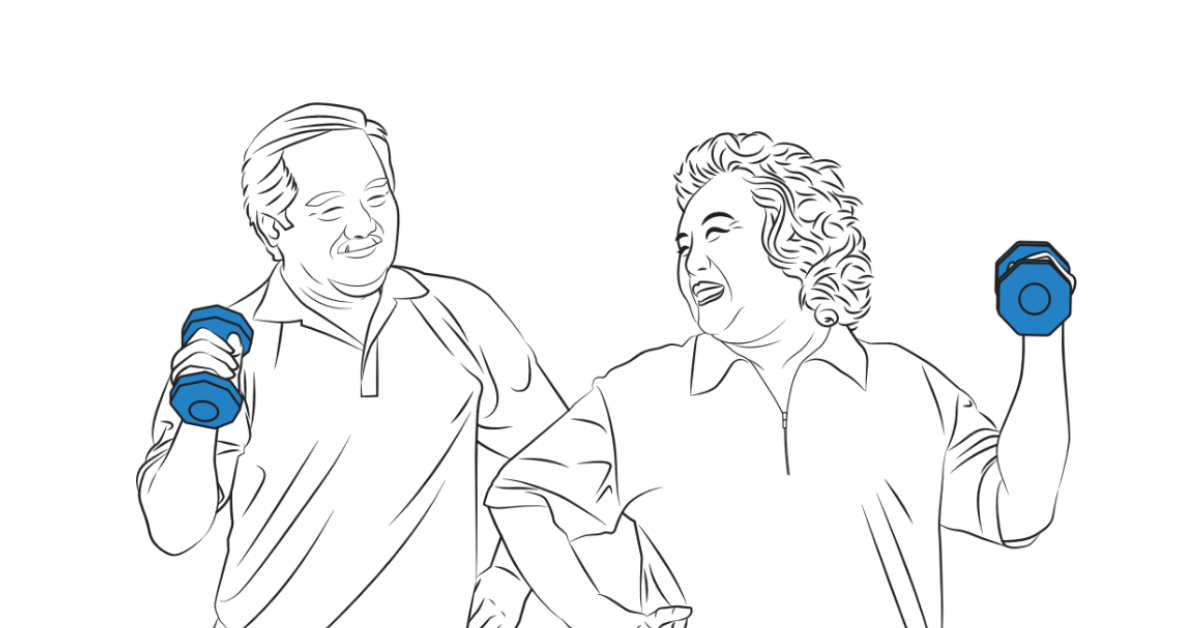Can’t find your keys? Forget what you had for breakfast? Walked into a room and forgot why you went there? You are not alone. Everyone forgets things occasionally. Memory lapses can be frustrating, and most of the time these cognition glitches are not cause for concern. Cognition is the brain’s ability to retain and use information. It involves the recollection of facts and enables the individual to make sense of what he or she sees, hears and feels so that he or she can react appropriately.
In many ways, our memories shape who we are. They make up our internal biographies—the stories we tell ourselves about what we have done with our lives. They tell us who we are connected to, who we have touched during our lives, and who has moved us. Our memories are crucial to the essence of who we are as human beings. It is not surprising then that one of the scariest things about getting older is the prospect of a decline in mental functioning. The loss of cognitive capability is extremely debilitating as it represents a loss of self. It affects an individual’s social life, threatens one’s independence and eventually upsets a person’s quality of life. As we grow older, we experience physiological changes that can cause hitches in our brain functions. It takes longer to learn and recall information. We are not as quick as we used to be. There is no getting around the fact that the ability to remember can slip with age; but in most cases, if we give ourselves time, the information will come to mind.
Still, memory loss should not be taken lightly, especially when it becomes so pervasive and severe that it interferes with our daily living and independence. This could lead to getting lost in familiar places, getting our conversations stalled, and forgetting how we are connected to your family and friends. If it gets bad enough, we may be heading for dementia.
DEMENTIA IN SINGAPORE
The number of people diagnosed with cognitive impairment in Singapore has been increasing in recent years, with the most prevalent cognitive disorder being dementia.
Dementia is an umbrella term used to describe a group of symptoms that affect mental tasks like memory and reasoning. It represents a late stage of disease along the continuum of cognitive impairment. It may be caused by brain cell death, or even head injury, stroke or brain tumour among other reasons. This damage interferes with the brain cells’ ability to communicate with each other, leading to memory loss, deterioration of intellectual function and change in personality. Dementia may affect people differently, depending on the area of the brain affected, with the two most common types being Alzheimer and Vascular Dementia.
The Ministry of Health estimates that there are about 25,000 patients with dementia in Singapore at present. This number is likely to increase rapidly and set to reach about 53,000 by 2020 as Singapore has one of the fastest-aging populations in the Asia-Pacific region.
Contrary to popular belief, dementia is not a normal outcome of aging. In fact, it is becoming more common among younger people. Known as Young Onset Dementia (YOD), the disease typically affects those in the 45 to 65 age group, or even younger. More aggressive than dementia in the old, YOD devastates the lives of sufferers at a time when they are still building careers and raising children. The rise in the number of YOD patients could be attributed to the increased prevalence of chronic diseases that can result in strokes, which in turn can lead to vascular dementia.
A study which examined the prevalence of cognitive impairment and dementia in community-dwelling Singapore Malays found out that among elderly Malays, the overall prevalence of any cognitive impairment was 25.5%. The same study also discovered that the prevalence of cognitive impairment was higher among Malays as compared to the Chinese.
Experts from the Institute of Mental Health (IMH) attribute the growing prevalence of the progressive brain disorder to lifestyle, diet, as well as the increasing prevalence of stroke, obesity, diabetes and hypertension that are risk factors for dementia. Studies have also shown that smoking and physical inactivity are significantly associated with cognitive decline. Also, some studies from the region have claimed that the prevalence of dementia is significantly greater among people with depression, have lower education, and those who are unemployed. Most of these factors are closely related to the community. Knowing dementia’s causes and prevalence helps policymakers plan services and raise awareness so that the community can recognise its symptoms and seek help early.

NEUROPLASTICITY
The central question is; while there are individuals who experience cognitive decline as they age, how do others maintain a healthy cognitive functioning throughout their life span?
Fortunately, our memory is not completely at the mercy of time. Everyone has bad habits, but when it comes to boosting brain health and preventing memory loss, there are certain lifestyles which would be wise to practise or avoid. Whether we are students studying for exams, working professionals trying to stay mentally sharp, or seniors looking to preserve our ageing mental capacity, there are various measures we can take to improve our memory and cognitive functioning.
Here are some approaches to keep our memory in check:
Stay mentally active
Our tendency to seek more stimulating environments throughout our lifetime is a fundamental element to cognitive reserve. Findings from the IMH study showed that people with education up to the primary level were 3.6 times more likely to have dementia than those with tertiary education. One possible reason is that poor education goes hand in hand with other pathogenic mechanisms leading to dementia such as malnutrition, exposure to trauma and inadequate health care. Better lifelong education also provides greater cognitive reserve which buffers against deleterious exposure favouring the development of cognitive disorders.
Staying mentally active does not necessarily mean we have to attend school or classes throughout our life span, but rather, keeping yourself mentally engaged. Just as physical activities help keep our body in shape, mentally stimulating activities help keep our brain in shape — and might keep memory loss at bay. Do crossword puzzles, take alternate routes when driving or learn to play a musical instrument.
Keep stress in check
Stress is one of the brain’s worst enemies. While short-lived stress primes the brain for improved performance, chronic stress has been shown to compromise cognitive functioning. When we are stressed, we waste a lot of our mental energy worrying, leaving lesser mental energy for paying attention to the things that need to be remembered. Over time, chronic stress destroys brain cells and damages the hippocampus, the region of the brain involved in the formation of new memories and the retrieval of old ones. Elevated amounts of cortisol – a natural hormone released when we are stressed – are also linked to the gradual loss of synapses in the prefrontal cortex, the region of the brain that houses short-term memory. Synapses are the connections that help us process, store, and recall information. Repeated and long-term exposure to cortisol can cause these synapses to shrink and disappear.
Managing stress thus has some real benefits in the long run. Make time throughout the day for a few minutes of meditation or quiet time. Socialise with family and friends and limit time spent with negative people or in stressful situations. Avoid “multi-tasking,” get organised, set your priorities, and simplify your life.
Sleep well
Research shows that sleep is necessary for memory consolidation, with the key memory-enhancing activity occurring during the deepest stages of sleep. When we sleep, slow brain waves are carried from the hippocampus where memories are stored temporarily, to the pre-frontal cortex in which they will be retained in long-term memory. Thus, not getting enough sleep will eventually affect the brain’s ability to store memories permanently. Memory, creativity, problem-solving abilities, and critical thinking skills are all compromised when you do not get enough sleep. Therefore, ensure that you practise good sleep hygiene. Maintain a regular sleep schedule, get at least 7-8 hours of shut-eye time, avoid lighted screens at least an hour before bed and cut back on caffeine.
Stay active
The benefit of exercising goes beyond the body and extends to the brain. Higher fitness level and physical activities have been linked to greater brain integrity and higher cognitive performance. Physical activity increases blood flow to our whole body, including our brain. Exercising stimulates the brain plasticity by promoting the growth of new cells connections in a wide array of important cortical areas of the brain. This helps keep your memory sharp. Invest at least 30 minutes of moderate exercise every day to get an oxygen boost to the brain. If you do not have time for a full workout, squeeze in a few 10-minute walks throughout the day.
Make better lifestyle choices today and set yourself up for a sharp mind in the future. ⬛
Nabilah Mohammad is a Research Analyst at the Centre for Research on Islamic and Malay Affairs (RIMA). She graduated from UNISIM with a Bachelor of Science in Psychology and is currently pursuing her Specialist Diploma in Statistics and Data Mining.








